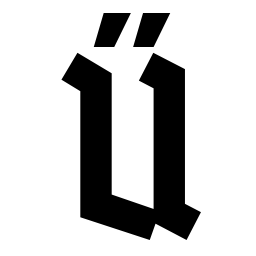Numeric literals¶
Ü supports numeric literals in various formats. There are two kinds of numeric literals - integers and floating point-literals.
Floating-point numeric literals¶
Floating-point numeric literals are decimal numbers with fractional point and/or exponent specified.
Type suffix may be specified for a floating-point numeric literal.
Supported suffixes are f and f32 for f32 type, f64 for f64 type.
If no suffix is specified for a floating-point numeric literal, it’s assumed to be of type f64.
Examples of floating-point numeric literals:
var f64 a = 0.0; // Has fractional point.
var f64 b = 1234.56; // Has several integer and fractional digits.
var f32 c = 87.33f; // Has suffix "f".
var f32 d = 0.000253f; // Has leading zeros in fractional part.
var f64 e = 67e7; // Has exponent.
var f64 f = 3.5e-14; // Has fractional point and negative exponent.
var f32 g = 12323.7f32; // Has suffix "f32".
var f64 h = 908754.24556f64; // Has suffix "f64".
Integer numeric literals¶
Decimal numbers without fractional point and exponent are considered to be integer numeric literals.
There is also support of non-decimal numeric literals:
base-2. Literal starts with
0bprefix. Digits 0-1 are possible.base-8. Literal starts with
0oprefix. Digits 0-7 are possible.base-16. Literal starts with
0xprefix. Digits 0-9 and a-f or A-F are possible.
Non-decimal numeric literals are always integers, fractional point and exponent can’t be specified, overflow is treated as error.
Integer numeric literals with value greater than 18446744073709551615 (264 - 1) aren’t supported.
Type suffix may be specified for an integer numeric literal.
Specifying suffix equal to the name of some built-in integer type means, that this numeric literal is of this type.
There are also additional suffixes u for u32 type and s for size_type type.
If no suffix is specified for an integer numeric literal, it’s assumed to be of type i32 (if it fits inside it), i64 or i128.
Examples of integer numeric literals:
var i32 a = 7; // Decimal number with no suffix - is "i32".
var i32 b = 644; // Several decimal digits.
var u32 c = 0u; // Suffix "u" for "u32".
var u64 d = 0b1100101101101110110111011100u64; // Binary number with suffix "u64".
var i8 f = 0x3ei8; // Hexadecimal number with suffix "u8".
var u16 g = 0o74u16; // Octal number with suffix "u16".
var i64 h = 0x868E5B7F; // Hexadecimal number too large to fit into "i32", so it's "i64".
var i128 i = 17446748073702551613; // Decimal number too large to fit into "i64", so it's "i128".
var size_type j = 1234s; // Decimal number with suffix "s".
var i32 k = 0x67ab4e; // Hexadecimal number with no suffix - is "i32".
